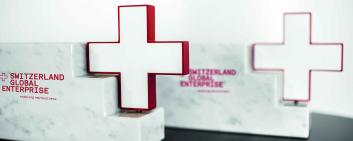Mr Ruigrok, you are positive about the future. When will the world economy recover?
I expect the recovery to begin in the second quarter. Of course, this all depends on the progress of the COVID-19 vaccination program. A quarter to a third of those most at risk are expected to have been vaccinated by the second quarter. The vaccinations and the arrival of spring should lead to a flattening of the coronavirus curve. This will make it easier to do business and to meet other people again - even internationally. There is definitely some catching up to do.
Do you expect recovery to be more regional or global?
I don't see any major differences and believe that the recovery will be global. China, for example, is not in a recession. The economy has not quite reached pre-coronavirus levels yet, but almost. So I am optimistic about the Chinese market. The North American market will also recover. South America and other emerging markets are still a little more unstable, so it is difficult to make any predictions for these countries. I also expect recovery in Europe and in parts of Asia.
However, as soon as the economy picks up, SMEs in the MEM sector will be able to benefit from a pent-up demand in Europe.
What does this mean for Swiss SMEs with an international focus?
It means that Swiss SMEs will gain an above average benefit from this development. International business will remain important or will become even more so. Exports were severely affected by the outbreak of the pandemic. The logical consequence is that if growth declines, exports will decline even more. If growth picks up again, exports will also increase again and it will become easier to develop new business.
How will companies be able to expand their international business sustainably and securely, and what priorities will they need to set?
Swiss SMEs were already good at establishing and successfully maintaining business relationships, even before the crisis. They will be able to use this strength now. Because if the crisis has taught us anything, it is that virtual encounters cannot entirely replace personal contacts. That is why I advise Swiss SMEs to visit their customers and suppliers in person again - with all due caution - as soon as this is possible. Their business partners will appreciate it enormously if the Swiss show up again and express interest in how they fared during the pandemic.
Which industries were particularly affected by the pandemic and which less so?
The MEM sector suffered greatly during this period. However, as soon as the economy picks up, SMEs in the MEM sector will be able to benefit from a pent-up demand in Europe. Retail and pharmaceuticals were and remain stable, as are some sectors with a domestic focus. The infrastructure market is likely to improve on a global scale due to government support. Food was generally less affected. Medtech also remained stable.
Will the Chinese market remain interesting for Swiss SMEs?
Definitely. The fact that we have a free trade agreement with China is advantageous for us. In addition, after four years of the Trump administration, the Chinese government and Chinese companies will want to develop new friends and business relationships in Europe. China needs friends - now more than ever. Even if the EU and China conclude a new investment treaty, this need not be a disadvantage for Swiss SMEs. As a neutral country, Switzerland offers China in particular enormous advantages. At most, I expect pressure on the EU from the Biden administration, but less on Switzerland.
Despite certain reservations, it makes sense to re-establish business relationships as quickly as possible, including on a personal level.
In which other countries might Switzerland also have good prospects due to its neutral position?
The improving relations between Israel and a growing number of Arab countries offers huge potential for neutral Switzerland and also for Swiss SMEs with their strengths in the technology, pharmaceutical and financial sectors. Switzerland already had good relations with some Arab countries in the past. The relations with Israel are also good, especially in the technology sector. In future, it will no longer be a problem to do business with both Israel and Egypt or the Emirates. This is also a relief for SMEs, especially when it comes to sending people to these countries.
Where do you see the biggest challenges for Swiss SMEs in terms of exports in the coming year?
Many companies have suffered greatly. Of course, I hope that they survived despite the coronavirus crisis. The challenge is likely to be of an operational and human nature: When will be the right time to visit your customers again? This will no doubt lead to discussions. Despite certain reservations, it makes sense to re-establish business relationships as quickly as possible, including on a personal level. Especially in Asia or in the growth markets, personal contact is culturally far more important than in Europe or North America.
What do these changes mean for Switzerland as an industrial location and for companies that want to settle here?
Switzerland continues to offer foreign companies a very attractive location. Even if certain tax advantages are less substantial owing to international pressure, Switzerland offers foreign investors a very well-educated, flexible and multilingual workforce, outstanding international connections, a stable and secure environment and a high standard of living.
About Winfried Ruigrok
Winfried Ruigrok is a Professor of Business Administration specialized in International Management and has been researching and teaching at the University of St.Gallen (HSG) since 1996. He is also the Academic Director (Dean) of the Executive School of Management, Technology and Law (ES-HSG) and Director of the Research Institute for International Management (FIM-HSG). He earned his PhD at the University of Amsterdam (NL). This was followed by work at the Warwick Business School (UK), the Erasmus University of Rotterdam/Rotterdam School of Management (NL), for the European Commission (B) and the Dutch Organization for International Development Assistance (NL). He has released over 100 publications and received several awards.








